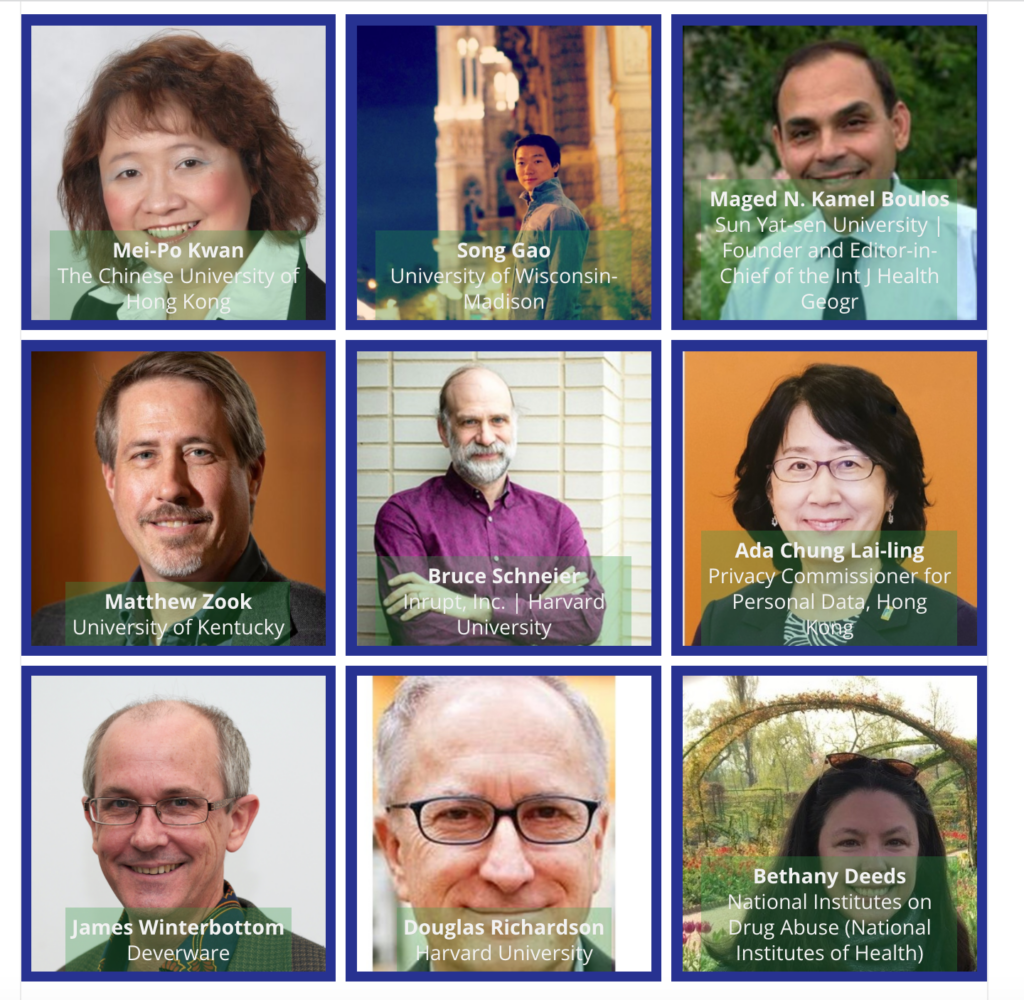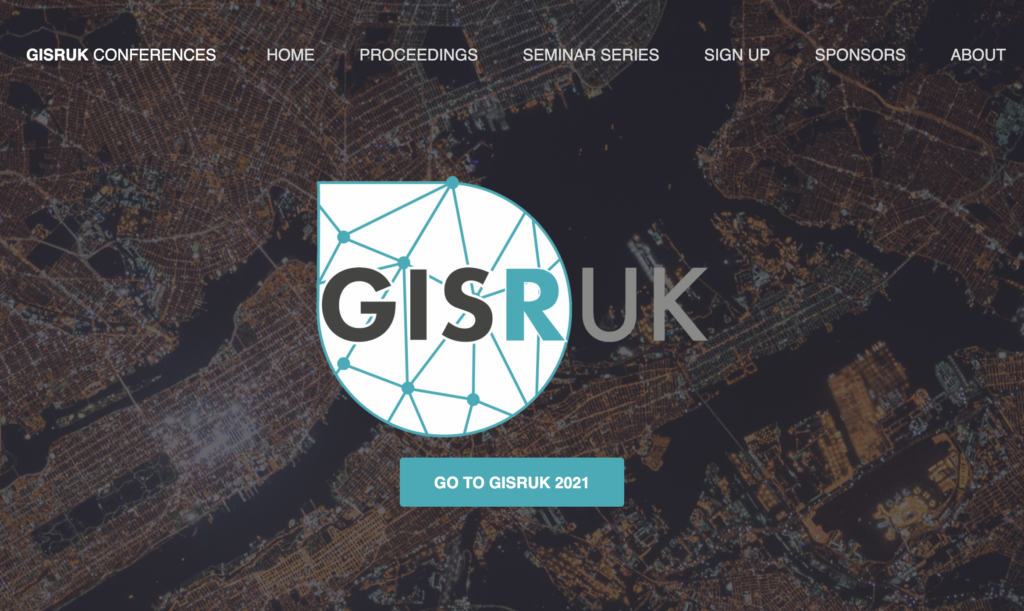Webinar: Ethical Issues of Using Geospatial Data in Health Research or Policies During the COVID-19 Pandemic and Beyond
Date and Time: Thursday, December 2, 2021 9:00 am – 11:00 am U.S. Eastern Time
Registration: https://aag-geoethics-series.secure-platform.com/a/solicitations/10/sessiongallery/200

This conversation is co-organized by AAG and the Institute of Space and Earth Information Science (ISEIS), at The Chinese University of Hong Kong (CUHK). During this webinar you will first hear presentations from speakers who are longtime scholars in the field of health geography. Presentations from academic speakers will set the stage for a discussion with panelists who are non-academic stakeholders on this topic in and outside the U.S.
Advances in geospatial technologies and the availability of geospatial big data have enabled researchers to analyze and visualize geospatial data in great detail. Geospatial methods are now widely used to uncover the complex patterns of diverse social phenomena, such as human mobility and the COVID-19 pandemic. However, using or mapping individual-level confidential geospatial data (e.g., the locations of people’s residences and activities) involves certain risk of disclosure and privacy violation. Such risk of geoprivacy violation has recently become a widespread concern as many COVID-19 control measures (e.g., digital contact tracing; self-quarantine methods; and disclosure of location visited by infected persons) used by governments or public health agencies collected individual-level geospatial data. These COVID-19 control measures pose a particularly serious geoprivacy threat because recent advances in geospatial artificial intelligence (GeoAI) and high-performance computing may significantly increase the accuracy of spatial reverse engineering (e.g., by linking high-resolution geospatial data with other data such as census or survey data to discover the identity of specific individuals). On the other hand, false inference, such as false positives from facial recognition for example, can result in big consequences.
This webinar will focus on ethical issues of using geospatial data analytics in health research and practices, especially in the context of the COVID-19 pandemic and beyond. The presentations will cover a wide range of topics, including uncertainties in analyzing relationships between disease spread and geographic environment, geoprivacy concerns for different COVID-19 control measures (e.g., digital contact tracing), addressing people’s concerns for geoprivacy in times of pandemics, IRB issues in health research during COVID-19, legal issues arose and policy implications of using individual-level confidential geospatial for controlling the spread of pandemics. Questions to be explored include: How can researchers protect people’s geoprivacy when using individual-level geospatial data to gain insights into the dynamics and patterns of infectious diseases? What disease control measures have higher risk of geoprivacy violation, which may significantly affect people’s acceptance of these measures and undermine their effectiveness in controlling the spread of COVID-19 or future pandemics? How can public health authorities balance the need for disease control and individual geoprivacy protection? What are the legal and technical issues in data sharing? How to minimize the unintended negative consequences such as the stigmatization of and discrimination against infected persons as a result of geoprivacy breaches or location disclosure?
